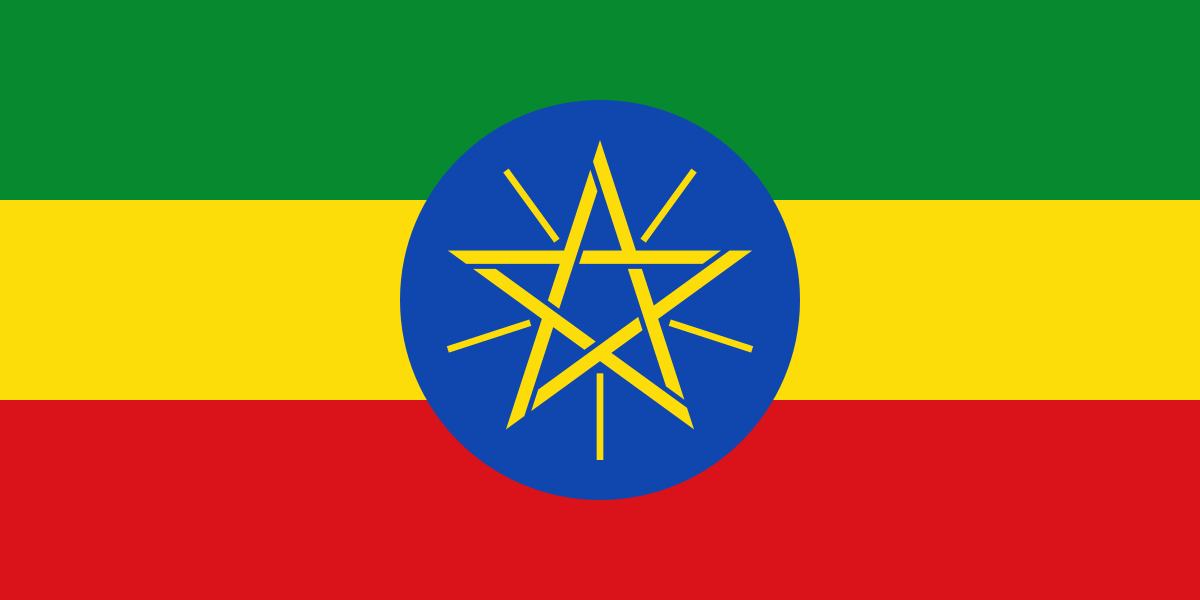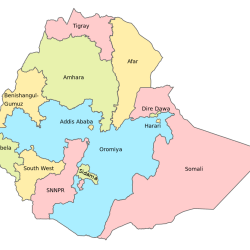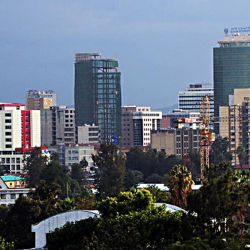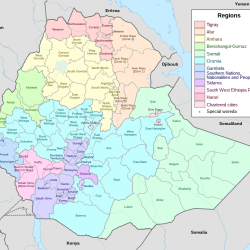The Constitution of Ethiopia. Article 19: Right of Persons Arrested
1. Persons arrested have the right to be informed promptly,
in a language they understand, of the reasons for their
arrest and of any charge against them.
2. Persons, arrested have the right to remain silent. Upon
arrest, they have the right to be informed promptly, in a
language they understand, that any statement they make
may be used as evidence against them in court.
3. Persons arrested have the right to be brought before a
court within 48 hours of their arrest. Such time shall not
include the time reasonably required for the journey from
the place of arrest to the court. On appearing before a
court, they have the right to be given prompt and specific
explanation of the reasons for their arrest due to the
alleged crime committed.
4. All persons have an inalienable right to petition the court
to order their physical release where the arresting police
officer or the law enforcer fails to bring them before a
court within the prescribed time and to provide reasons
for their arrest. Where the interest of justice requires, the
court may order the arrested person to remain in custody
or, when requested, remand him for a time strictly
required to carry out the necessary investigation. In
determining the additional time necessary for investigation, the court shall ensure that the responsible law
enforcement authorities carry out the investigation respecting the arrested person’s right to a speedy trial.
5. Persons arrested shall not be compelled to make confessions or admissions which could be used in evidence
against them. Any evidence obtained under coercion shall
not be admissible.
6. Persons arrested have the right to be released on bail. In
exceptional circumstances prescribed by law, the court
may deny bail or demand adequate guarantee for the
conditional release of the arrested person.
Ethiopia’s Right of Persons Arrested: A Detailed Analysis of Article 19
Introduction
The protection of individual rights during arrest and detention is fundamental to a fair justice system. Article 19 of Ethiopia’s Constitution provides comprehensive protections to prevent unlawful arrests, forced confessions, and prolonged detentions without trial.
However, challenges in enforcement, including arbitrary detentions and lack of public awareness, have led to violations of these rights. Understanding these provisions is essential to ensure that law enforcement authorities respect due process and that detainees are aware of their legal protections.
Right to Be Informed Upon Arrest
One of the most critical aspects of due process is ensuring that an arrested person knows why they are being detained.
Explanation of Charges in a Language Understood
- The arresting officer must immediately inform the suspect of the reason for their arrest.
- The explanation must be given in a language the person understands, ensuring that they can properly respond to the charges.
- This provision aligns with international human rights standards, such as those outlined in the International Covenant on Civil and Political Rights (ICCPR).
Legal Obligation of Law Enforcement
- Failure to inform a suspect of the reasons for their arrest can be challenged in court.
- Law enforcement agencies must ensure transparency in the arrest process to prevent wrongful detentions.
Right to Remain Silent
Article 19 grants all arrested individuals the right to remain silent, a crucial protection against self-incrimination.
Protection Against Self-Incrimination
- A suspect cannot be forced to testify against themselves.
- Any statement made under duress cannot be used as evidence in court.
Importance of Legal Awareness
- Police officers must inform the arrested person of their right to remain silent.
- Lack of legal knowledge often leads to individuals unknowingly self-incriminating themselves.

Right to Be Brought Before a Court Within 48 Hours
A suspect must be presented before a court within 48 hours of their arrest, excluding travel time.
Judicial Oversight of Arrests
- The court reviews the legality of the arrest and determines whether the detention is justified.
- If there is no valid reason for the arrest, the person must be immediately released.
Exceptions to the 48-Hour Rule
- Travel time from the place of arrest to the court is not counted within the 48-hour period.
- Emergency situations may allow for limited extensions, but must be justified in court.
Right to Petition for Release
If authorities fail to present a detainee in court within the legal timeframe, the arrested person has the right to petition for immediate release.
Legal Mechanisms to Challenge Unlawful Detention
- The arrested person can file a complaint in court if detained beyond 48 hours.
- The court must rule on the legality of the detention.
Role of the Judiciary in Protecting This Right
- Courts have the power to order release or continuation of detention based on the interest of justice.
- Law enforcement authorities must respect the right to a speedy trial and avoid unnecessary delays in investigations.
Protection Against Forced Confessions
Forced confessions and coerced statements are inadmissible in court under Article 19.
Prohibition of Coerced Evidence
- Torture, threats, or psychological pressure cannot be used to extract a confession.
- Any evidence obtained through coercion is considered invalid.
Legal Consequences of Forced Confessions
- Officers involved in obtaining forced confessions can face disciplinary and criminal charges.
- Detainees subjected to coercion have the right to file complaints.
Right to Bail and Conditional Release
All arrested persons have the right to be released on bail, unless exceptional circumstances apply.
Bail as a Fundamental Right
- Bail ensures that individuals are not wrongfully detained while awaiting trial.
- Courts determine the bail amount based on the nature of the offense and flight risk.
Exceptional Circumstances for Denial of Bail
- Severe crimes such as terrorism or murder may lead to denial of bail.
- The court may require additional guarantees, such as passport surrender or regular check-ins.
Government’s Role in Protecting Arrest Rights
The Ethiopian government has a duty to:
- Train law enforcement officers on proper arrest procedures.
- Ensure that detainees are treated fairly and informed of their rights.
- Monitor human rights violations related to unlawful arrests and detentions.
Challenges in Implementing Article 19
Despite legal protections, Ethiopia faces practical challenges in enforcing Article 19.
Arbitrary Arrests and Detentions
- Some law enforcement officers detain individuals without proper cause.
- Political and human rights activists have reported cases of wrongful detention.
Limited Public Awareness of Legal Rights
- Many detainees do not know their rights, making them vulnerable to abuse.
- Legal education campaigns are needed to improve public knowledge.
Comparing Ethiopia’s Arrest Rights with Other Countries
Countries like the United States and South Africa have strong protections for arrested individuals, including:
- Strict rules against unlawful detentions.
- Immediate access to legal representation.
- Stronger enforcement of judicial oversight.
Ethiopia can further strengthen its arrest rights protections by implementing stricter enforcement and legal aid services.
Success Stories and Progress in Legal Protections
- Judicial reforms have improved fair trial processes.
- Increased awareness has led to reduced wrongful arrests.
- Legal organizations provide aid to detainees who cannot afford legal representation.








